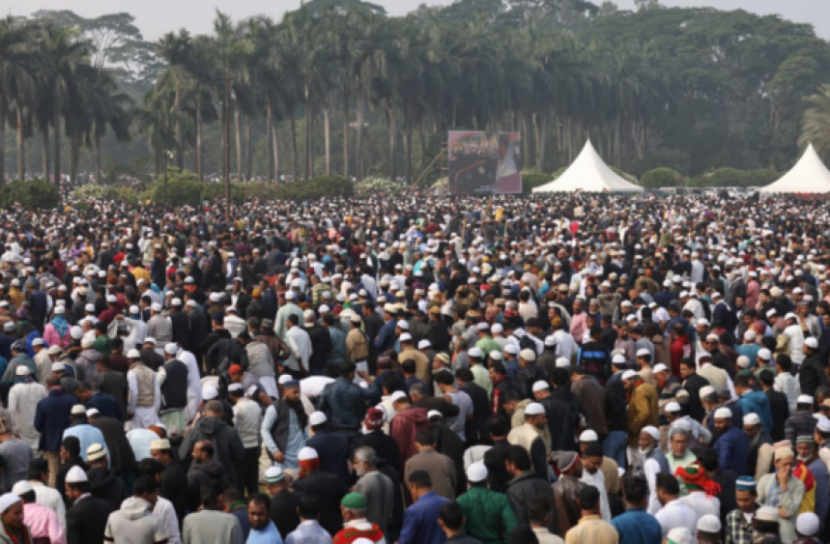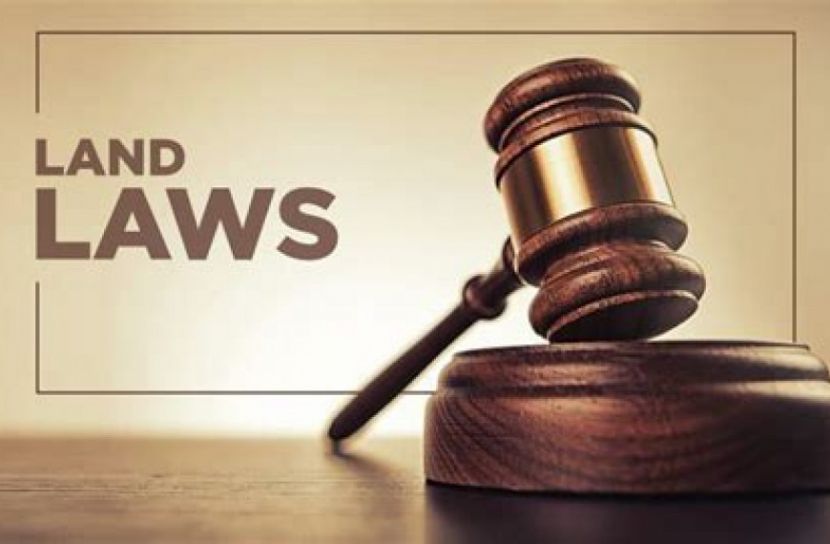
Inward remittance of the country shrinks by 23%

VC Niaz Ahmed Khan resigns

One dies while attending Janaza!

Bangladesh will not join ICC T20 World Cup in India

Hafsa Sadia: The Land Crime Prevention and Remedy Act, 2023, is a criminal law designed to define a variety of land-related offenses, including illegal possession, forgery, and fraudulent transactions, and to specify appropriate punishments for them. However, certain provisions of this act significantly expand executive power at the expense of judicial independence. This has become contradictory to the doctrine of the separation of powers enshrined in the Constitution of Bangladesh and challenges the constitutionality of the executive branch's legal authority. It undermines not only established legal principles but also raises significant concerns regarding due process, fairness, and potential arbitrary justice.
Section 8 of the Act empowers executive magistrates to restore possession in land disputes without prior adjudication of civil rights. According to section 195(1)(b) and (c) of the Code of Criminal Procedure (CrPC), if a land dispute involves crimes like fraud and forgery, a court cannot initiate a criminal trial until a civil court first decides the ownership of the disputed land. These provisions essentially provide protection against false criminal complaints and unfair involvement in cases. Section 9 of the Civil Procedure Code (CPC) establishes the exclusive jurisdiction of the civil court to adjudicate disputes relating to land ownership, possession, and title. Thus, it restricts other authorities, like executive magistrates, from interfering in judicial functions.
Article 109 of the Constitution of Bangladesh empowers the High Court Division to have control and superintendence over all subordinate courts and tribunals, which aims to ensure fairness and accountability in the justice system. However, mobile courts exercise their judicial power independently and beyond the supervision of the High Court. Therefore, section 8 of the Act contradicts established laws, undermines the constitutional framework, and indirectly violates Article 35 (right to a fair trial) of the Constitution. The case Secretary, Ministry of Finance vs Masdar Hossain (2000) upheld Article 22 of the Constitution of Bangladesh, which articulates the separation of the judiciary from the executive. The court also emphasized the functional and structural distinction of judicial service from executive and administrative services.
Moreover, executive officers are primarily trained in criminal law and lack adequate expertise in complex land statutes. Former Chief Justice Surendra Kumar Sinha criticized the idea of a 'dual judiciary' as it hampers the proper functioning of the judiciary, and mobile courts exercise judicial powers outside the supervision of the Supreme Court.
Section 9 of the Act enables summary proceedings through mobile courts. The Mobile Courts Act, 2009, especially Section 5, empowers executive magistrates to hold summary trials. In the 2017 Mobile Court Verdict, the High Court declared multiple provisions of this Act unconstitutional, stating that granting judicial power to executive officials is a 'frontal attack' on judicial independence and violates the separation of powers.
Recently, a debate has arisen regarding certain provisions of the Land Crime Prevention and Remedy Act, 2023, because they create significant power imbalances by expanding executive authority at the expense of judicial independence. This Act undermines the constitutional separation of powers and the exclusive jurisdiction of civil courts over land disputes. This overreach increases the chances of arbitrary justice, questioning constitutional supremacy. To uphold constitutional supremacy and establish judicial independence, amendments to these certain provisions are necessary.
Sunnews/ra
Newsletter
Subscribe to our newsletter and stay updated.


